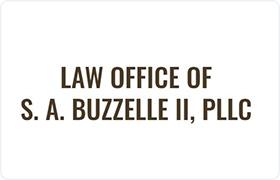New River Bankruptcy & Debt Lawyer, Arizona
Sponsored Law Firm
-
 x
x

Click For More Info:
-
Law Office of S.A. Buzzelle II, PLLC
14050 N 83rd Avenue Suite 290 Peoria, AZ 85381» view mapBankruptcy & Debt Law Your Trusted Bankruptcy Attorney
If you are in need of legal services for matters relating to bankruptcy and divorce, rely on Law Office of S. A. Buzzelle II, PLLC in Peoria, AZ.
800-873-4991
Wayne D Carroll
Litigation, Intellectual Property, Business, Bankruptcy & Debt
Status: In Good Standing Licensed: 19 Years
Michael Duane Hudgins
Real Estate, Lawsuit & Dispute, Bankruptcy, Bankruptcy & Debt
Status: In Good Standing Licensed: 35 Years
James P Rinehart
Real Estate, Trusts, Bankruptcy, Bankruptcy & Debt
Status: In Good Standing Licensed: 23 Years
 Stanley A. Buzzelle II Peoria, AZ
Stanley A. Buzzelle II Peoria, AZ Practice AreasExpertise
Practice AreasExpertise
